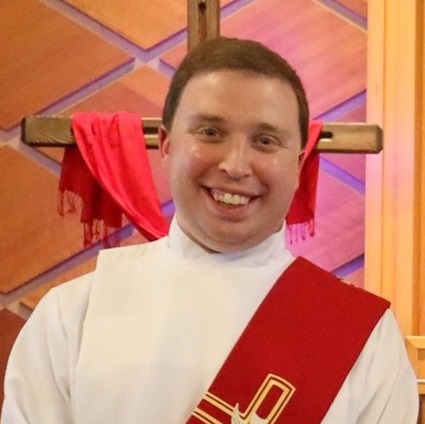Years ago there was a campaign from the milk industry in the United States that asked a simple question: “Got milk?” In those commercials there was often a child or a cow with a chocolate milk mustache. In that vein, let me ask you this, “Got stewardship?” My guess is the question isn’t received as easily as “Got milk?” The question isn’t exactly asking do you talk about money in your preaching? It’s not asking do you preach on stewardship once a year around times related to the budget and/or year-end giving? No. It’s asking a discipleship question and that matters. So, preachers, do you have stewardship in your preaching?
Defining stewardship
To clarify, I mean stewardship in the holistic sense. Consider Psalm 24, “The earth is the Lord’s and all that is in it; the world, and those who live in it” (Psalm 24:1). This implies that not only is the earth God’s, but all within it are also God’s too. That means that you and I are God’s, and all that we have and all that we are, are too. This leads to an understanding of God being one who entrusts us with what we have—our health, bodies, time, talents, possessions, assets of all kinds, strengths, passions, questions, ideas, dreams, and vocations.
In preaching this, the natural next question is “but why?” Why does God entrust? This is an educational piece for your congregation which, if you have never preached on it before, might need to be clarified. God does this entrusting so that life might go well for us, because that life which God dreams for us is by its very nature abundant.1 God provides this with the hope that we will take hold of that abundant life and vocation(s) with deep meaning and purpose. Thereby one might even begin to see God at work and showing up in, with, and through God’s people in the world, as a joyful response for all that God has done, will do, and promises to do.
Thinking stewardship year-round
This understanding of stewardship is not limited to one time of the year. It’s a year-round theme which is integral to a deep life of discipleship and formation. So, what might this look like, to include stewardship in preaching year-round? It’s not as hard as one might think.2 Take some of the usual stories throughout the ministry year:
- Jesus feeding the 5,000+ (Matthew 14:13-21): In God, abundance is real and there is more than enough to meet the needs of all of God’s beloved.3
- Managing talents (Matthew 25:14-30): What God entrusts might look different for each individual, but God is the one doing the entrusting.
- Gifts of the Magi (Matthew 2:1-12): Advent, Christmas, and Epiphany might not always seem logical stewardship preaching times. But they are, because they are all about God’s gifts and our gifts in response. What might we share with our neighbors as signs of God’s love, and what might we return to God, that God first entrusted to us?
- Ash Wednesday (Matthew 6:1-6, 16-21): The annual gospel lesson from Matthew 6 appointed for Ash Wednesday is all about where one’s heart is, and a warning about moth and rust consuming. It’s an invitation to Lent, but also to more intentional discipleship and stewardship. What we do matters, especially because of the one who calls, invites, meets us where we are at, and entrusts us with all that we have and all that we are.
- Parable of the Good Samaritan (Luke 10:25-37): At its heart, stewardship is all about doing what you can with what you have, for the sake of your neighbors. Walk together and accompany one another.
- Woman at the well (John 4:1-42): God in Christ comes near to God’s people, and when God shows up, we can’t help but be changed and so moved that we want to share that good news with anyone who might listen. This is an example of the stewardship principle of the joyful response.
- Stories of Holy Week: If stewardship is all about response, then what we are responding to is never clearer than through the stories of Holy Week. God is up to something new—bringing about life out of death, hope, healing, and reconciliation out of brokenness. If that’s not a reason to give thanks and praise, then we might as well all go home.
- Road to Emmaus (Luke 24:13-35): Once the two disciples on the road discern who has been walking with them, they turn back and run with joy. That joy leads them forward and into their lives more motivated than ever to share, grow, and serve as disciples and stewards.
Connecting the dots
Stewardship does not have to be the weekly main focus of your preaching, and it probably shouldn’t always be. But it can be woven in through an observation or connection, as a way to connect the dots.4 Connect the depth of the story with daily life, and the way one might approach the challenges and joys of their day as a person of faith called to grow, live, and serve as a disciple and steward of God’s love. The work of connecting is that of the preacher, though, because we cannot assume that those connections will always be made by the hearer otherwise.
This goes double, for saying thank you.5 There is no greater joy than saying thank you. You cannot say it enough as a pastoral leader and as a congregation. Highlight the ways you see and witness God’s people serving as God invites. Lift up the stories of lives being changed through God’s deep love made real in part through God’s people here and now. That sense of gratitude is contagious, and it’s amazing what happens when it’s lived out honestly and openly. It’s the kind of abundance which one might see as the crowds witnessed when Jesus fed thousands with a few loaves and a couple fish.
With that in mind, thank you for doing all that you do! Thank you for sharing God’s love and the story of God’s ongoing love, presence, and promise with the world. I know you get stewardship, and I am grateful to walk alongside you all as we continue to accompany God’s people in living out the hope and promises of the gospel.
Notes
- As Jesus declares, “I came that they may have life, and have it abundantly” (John 10:10).
- For a starting place for stewardship nuggets for preaching for the 2023-2024 ministry program year, check out: https://nebraskasynod.org/wp-content/uploads/2023/08/STEWARDSHIP-PREACHING-IDEA-RCL-2023-2024-FINAL.pdf. A resource that is a part of a larger initiative to “Go And…” as God’s people. For more on this, visit: https://nebraskasynod.org/go-and/.
- Find different versions of this story in Mark 6:34-44; Luke 9:12-17; and John 6:1-14.
- For more on what this might look like, consider the ideas from Charles Lane and Grace Duddy Pomroy in Embracing Stewardship: How to put stewardship at the HEART of your congregation’s LIFE, (Embracing Stewardship, LLC, 2016).
- Consider Ask, Thank, Tell: Improving Stewardship Ministry in Your Congregation by Charles Lane, (Minneapolis, MN: Augsburg Fortress, 2006) and Reflections on Faith and Finances: A guide for individuals and groups based on Ask, Thank, Tell by Charles Lane, (Minneapolis, MN: Augsburg Fortress, 2019).

